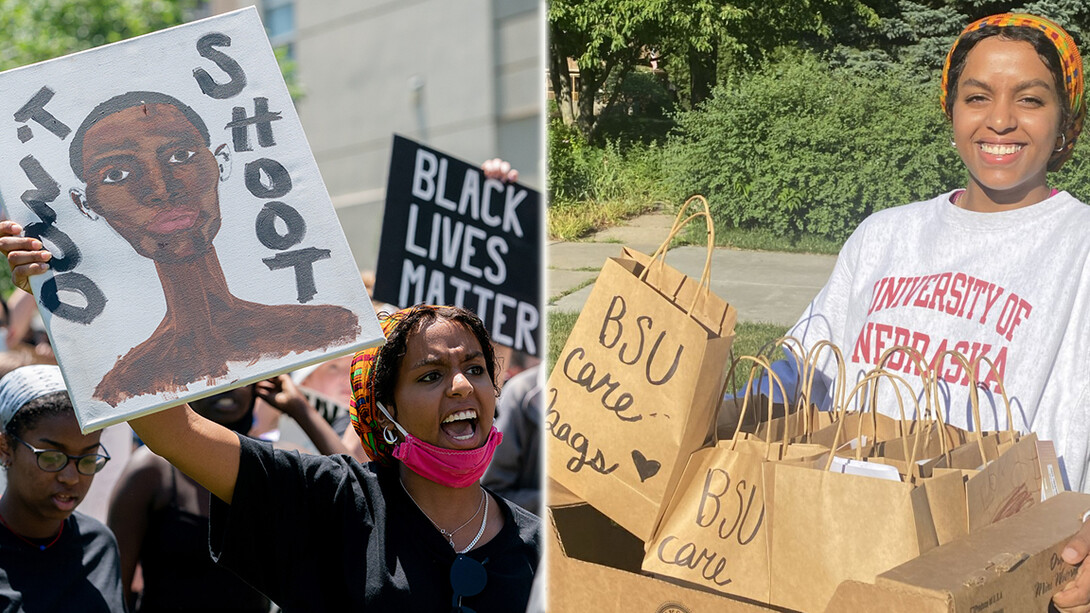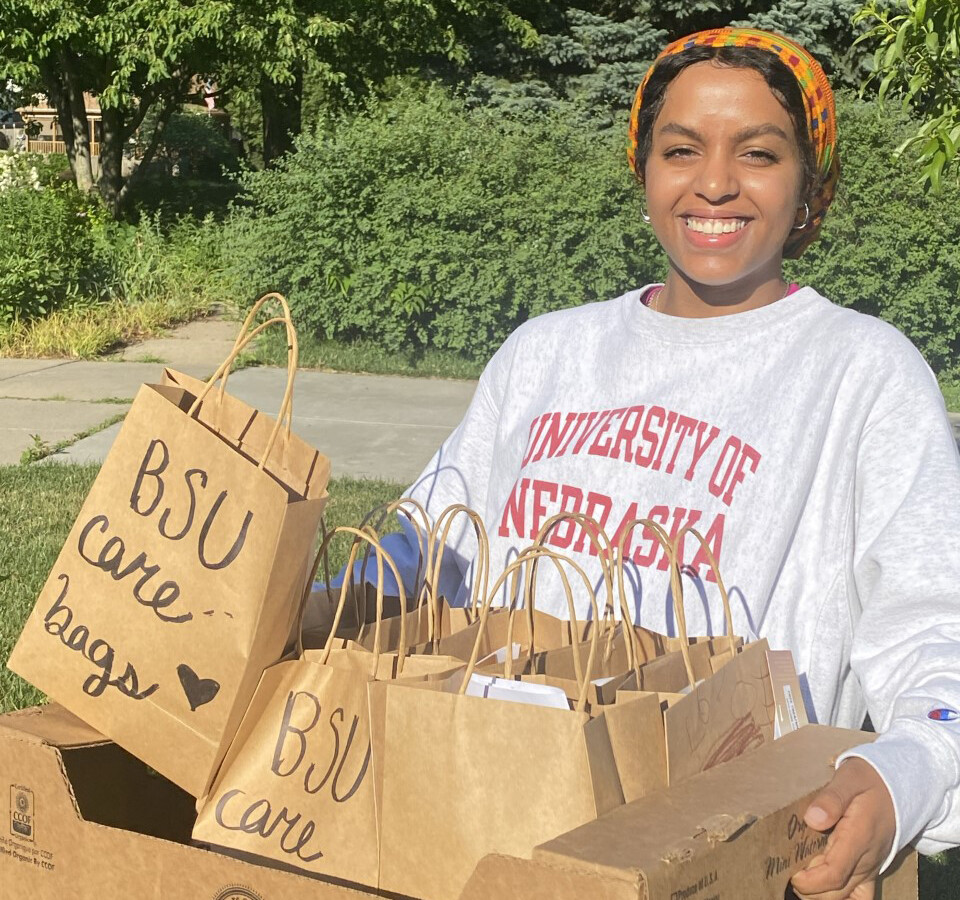
In the days following George Floyd’s murder in Minneapolis, feelings of anger and sadness pushed countless American citizens across the nation into the streets in protest.
At the University of Nebraska–Lincoln, black student leaders banded together to ensure change was enacted.
“It was time for us and our community members to finally demand changes and not allow people to tell us what those changes are,” said Batool Ibrahim, president of the Black Student Union.
In addition to protesting, signing petitions and meeting with other campus groups, the students found a way to make an immediate impact in the campus and Lincoln community.
“We are still living in a pandemic,” Ibrahim said. “And while we can provide masks and all these things for protestors, there are a lot of people outside of protests in our community that are getting disproportionately impacted by the coronavirus pandemic.”
Due to the pandemic, food banks and other organizations such as the Husker Pantry had to shut down, cutting off needed resources to many who relied on those places. To lend a hand, the Black Student Union launched the BSU Care Bags initiative, a project that provides wellness items — including food, over-the-counter medications, hand sanitizer and hygiene products — to community members in need. An initial push that included a flier and options to donate raised more than $14,000 for the project.
“It really speaks to how Lincoln feels and is willing to stand with the Black Lives Matter movement and with initiatives that will help uplift our community,” she said.

Individuals in need can get on the BSU Care Bags distribution list by filling out a Google form. Access is first come, first served.
Ibrahim said the initiative is run solely on donations, which can be made via Venmo, @unlblackstudentunion, or through Cash App at $UNLblackstudentunion.
Ibrahim said the work by the Black Student Union is to show that the Black Lives Matter movement is about more than just police brutality.
“It’s every problem at the systematic level, at the institutional level, at the university level, at the local level,” he said. “It is not being able to have access to resources in the ways that other communities do. The question that a lot of people ask themselves, I think, is the wrong question. It doesn’t have to be am I for LPD or am I not? It’s more. Should people be held accountable for misconduct? Should people be held accountable for unjust behavior?”
The Black Student Union received positive responses from both President Ted Carter and Chancellor Ronnie Green, who want to listen to the changes that need to be made and hopefully create a plan of action, Ibrahim said. Some of those changes include hiring and investing in more faculty and staff of color across all departments at the university. The current number is very disproportionate, not allowing many Black students on campus to have a faculty member as a mentor.
“The black faculty and staff are, at the core, what the black students will look like and what the black students will achieve,” said Ibrahim. “I really hope that by the end of these conversations we have with different university officials, they will understand the magnitude and the importance of that mentorship, and of that community, that we as black students not only need, but that it is crucial to our success.”
Ibrahim also hopes all Huskers — regardless of ethnic background — get involved with black organizations on campus in order to educate themselves and support different initiatives that happen throughout the year.
“It’s an open space,” Ibrahim said. “The information is there if you want to seek it.”

For more information on multicultural organizations at the University of Nebraska–Lincoln, visit the Jackie Gaughan Multicultural Center website.
Here are some ways to help with the Black Lives Matter movement, as highlighted by the Black Student Union:
Read and sign the Justice for George Floyd petition to urge state officials to properly prosecute those involved.
Text “Floyd” to 55156
Donate to the NAACP Legal defense fund, Communities United Against Police Brutality, the Black Lives Matter movement and/or the Minnesota Freedom Fund.
Urge state senators and representatives to break the silence and speak on these events that happen too frequently.
Participate in the protests that are occurring throughout the country. There is power in numbers and voices are heard when multiplied.
Donate to the BSU Care Bags Initiative.







